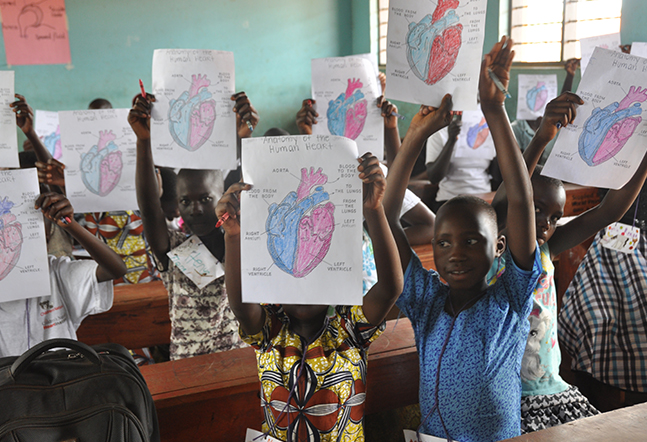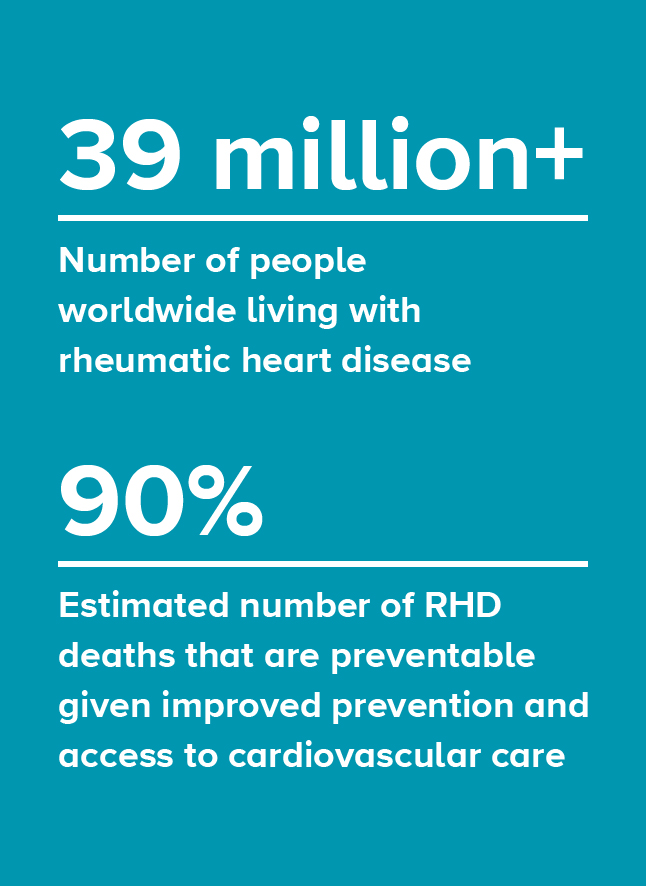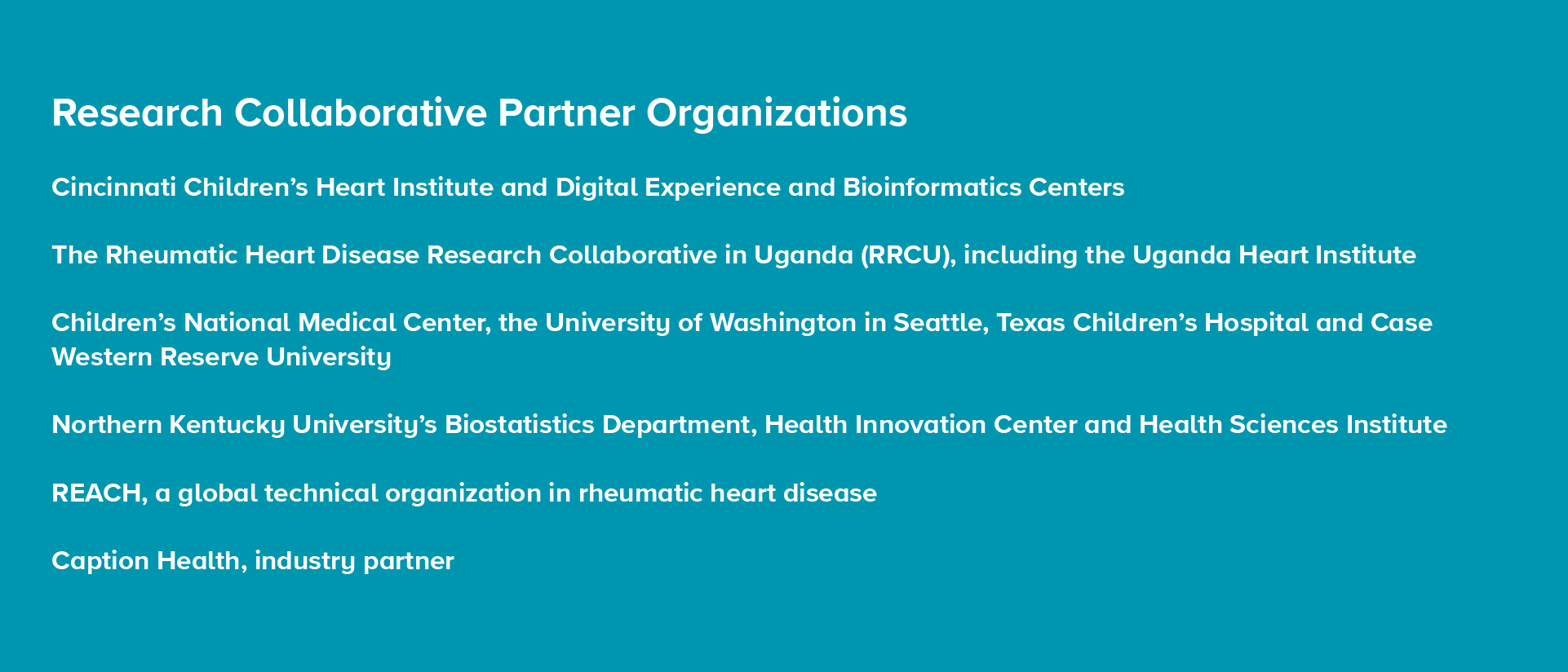$2.5 Million Grant Funds Research to Address a Global Health Issue

A research team led by Cincinnati Children’s Heart Institute pediatric cardiologist Andrea Beaton, MD, is delving into the global health issue of increasing guideline-based care for rheumatic heart disease (RHD). In April 2020, the American Heart Association (AHA) awarded the team $2.5 million in grant funding to pursue this work as part of a collaborative formed under the AHA’s new Strategically Focused Research Network on Health Technologies and Innovation.
The multi-organization team (see sidebar) is exploring using cardiac echocardiography to improve diagnosis of RHD in low-resourced countries by decentralizing echocardiograms and making them more accessible to a larger population. They are also building a mobile community-based case management platform to bring high-quality care to RHD patients in rural and remote settings around the globe.
Capitalizing on Prior Success with Technology
Cincinnati Children’s has a sound history in using technology to improve outcomes. Beaton explains, “The medical center has the infrastructure and resources in place to support this type of work. We’re able to take innovations that have improved outcomes of children with heart disease in Cincinnati and expand them to make healthcare more equitable in low-resource countries, like Uganda.”
An example of this success with technology is the medical center’s Identity Registry, developed by the Division of Biomedical Informatics, which helps address health disparities in the U.S. foster system. This same group is developing Beaton’s mobile registry.

While Beaton’s work is primarily being done in Uganda, it is being developed to be sustainable and scalable so that it can be used worldwide. In the United States, these same imaging modalities could be applied to address disparities in diagnostic access in areas lacking subspeciality access. Decentralizing echoes in this way could also affect rural areas of the country, as these technologies could be spread for uses outside of RHD.
Additional Grant Award for COVID Research
This same team also received a supplemental research grant from the AHA for a rapid action project to develop technology solutions for the COVID-19 pandemic. This work looks at the possibility of providing point-of-care echocardiography to improve the ability to care for patients in the emergency room. They’re exploring how obtaining basic heart views can be used to improve triage for patients.
Says Beaton, “We’re excited about taking our success in delivering quality care in the U.S. and applying that to a global problem.”


